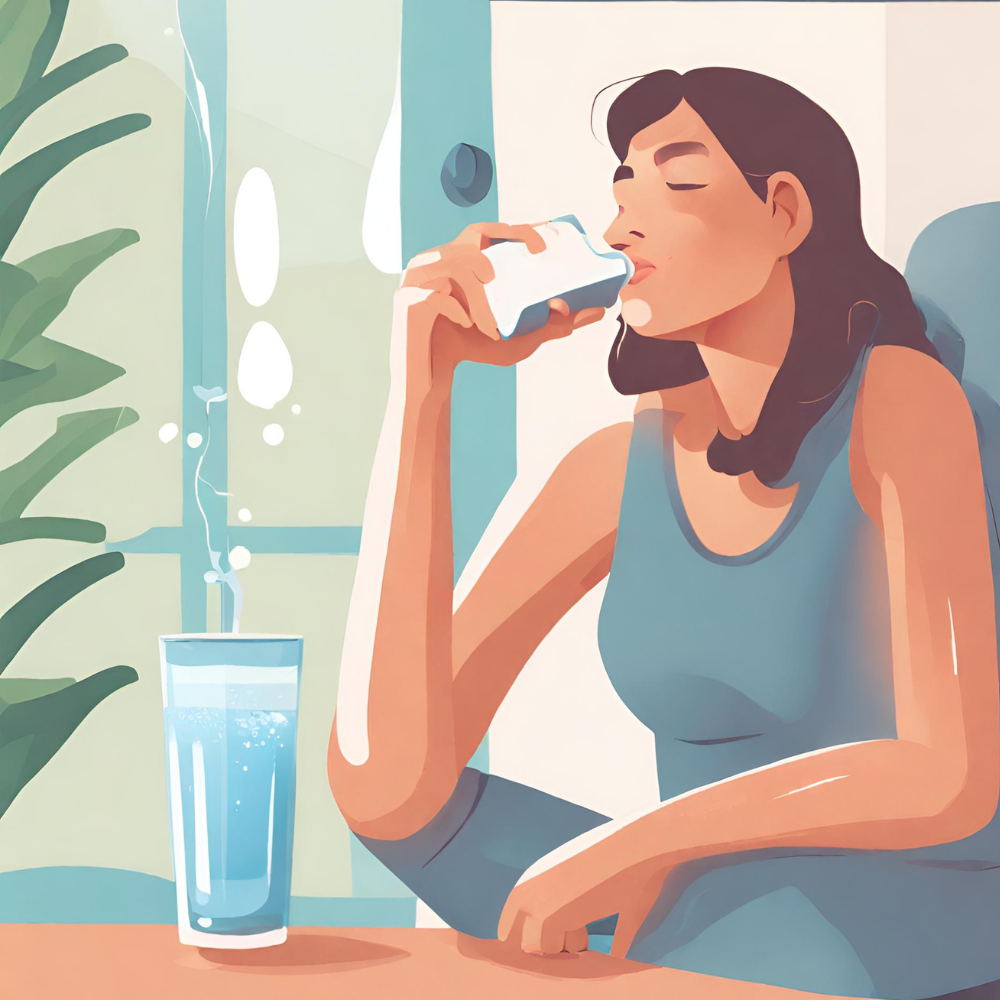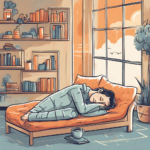Exploring the connection between hydration and napping is vital for overall health, particularly when considering seasonal variations. This article focuses on the importance of seasonal hydration for better sleep, providing guidance on how to adjust fluid intake with changing seasons to optimize rest and rejuvenation.
Understanding the Role of Hydration in Sleep Health
Hydration plays a crucial role in maintaining sleep quality. Proper hydration is essential for various bodily functions, including sleep regulation. When the body is dehydrated, it experiences discomfort, which can lead to restless sleep or challenges in falling asleep. Therefore, balancing fluid intake for better sleep across seasons is critical for achieving deep, restorative sleep.
Seasonal Variations in Hydration Needs and Their Impact on Sleep
The body’s hydration needs change with the seasons, directly impacting sleep quality and napping habits. During summer, increased sweat loss necessitates a higher fluid intake. On the other hand, winter’s cooler weather often decreases thirst, yet the body still requires adequate hydration. Understanding these seasonal adjustments in hydration for enhanced sleep quality is key to maintaining good sleep health.
Hydration Strategies for Improved Napping During Different Seasons
Adjusting hydration habits for seasonal sleep patterns is crucial for enhancing napping quality with seasonal hydration:
- Summer: In warmer months, increase your water intake to compensate for higher fluid loss. Adequate hydration helps maintain energy levels and reduces the need for prolonged naps.
- Winter: Even though you might not feel as thirsty, continue drinking fluids regularly. Using a humidifier can help counteract the drying effects of indoor heating systems.
Optimizing Sleep Through Seasonal Hydration
To ensure optimal sleep quality, consider these tips:
- Monitoring Weather Forecasts: Stay informed about the weather to anticipate changes in hydration needs.
- Adjusting Lifestyle Choices: Light exercise, proper hydration, and avoiding heavy meals before bedtime can enhance sleep, especially during periods of significant barometric pressure fluctuations.

Navigating Hydration for Restful Napping Across Seasons
Effective napping goes hand in hand with proper hydration, especially when adapting hydration habits for seasonal sleep patterns. As we transition through different weather conditions, understanding how to balance fluid intake becomes crucial for enhancing napping quality with seasonal hydration.
Tips for Hydration and Napping in Warmer Weather
During the hot summer months, staying well-hydrated is key for optimal sleep:
- Increased Water Intake: The higher temperatures and more physical outdoor activities require an increase in fluid consumption to offset increased perspiration.
- Mindful Evening Hydration: Be cautious about fluid intake closer to bedtime to prevent disruptive nighttime awakenings, an important aspect of optimizing sleep through seasonal hydration.
Adapting Hydration Practices for Cold Weather Naps
In colder months, the challenge lies in maintaining adequate hydration:
- Warm Beverages for Hydration: Embrace warm, hydrating drinks like herbal teas, which provide comfort without the sleep-disrupting effects of caffeine.
- Maintaining Regular Fluid Consumption: Despite a decreased urge to drink, regular fluid intake is crucial to avoid dehydration and maintain sleep quality.
Seasonal Sleep Hydration Techniques for Improved Napping
To enhance your napping experience throughout the year, consider these seasonal sleep hydration techniques:
- Hydrating Snacks: Incorporate foods high in water content to aid hydration, beneficial for both summer and winter months.
- Hydration Before Napping: Adjust your fluid intake based on the time of day, ensuring you’re well-hydrated before napping without overdoing it.
Fluid Intake and Sleep Quality: Seasonal Insights
Adequate hydration impacts sleep quality significantly:
- Recognizing Dehydration Signs: Symptoms like dry mouth or fatigue can indicate a need for more fluids, directly affecting sleep quality.
- Evening Fluid Management: Balancing fluid intake during the evening is essential to avoid sleep disturbances while ensuring you stay hydrated.
Conclusion: Mastering Hydration for Optimal Sleep and Napping
Mastering the art of hydration and sleep: seasonal approaches play a pivotal role in ensuring quality rest. By adjusting your fluid intake according to the season, you can significantly improve your sleep and napping experiences. Paying attention to your body’s hydration signals and adapting your habits accordingly can have a profound impact on your overall health and well-being. As you navigate through the changing seasons, remember that a well-hydrated body is key to achieving restful sleep and rejuvenating naps, no matter the weather outside.


